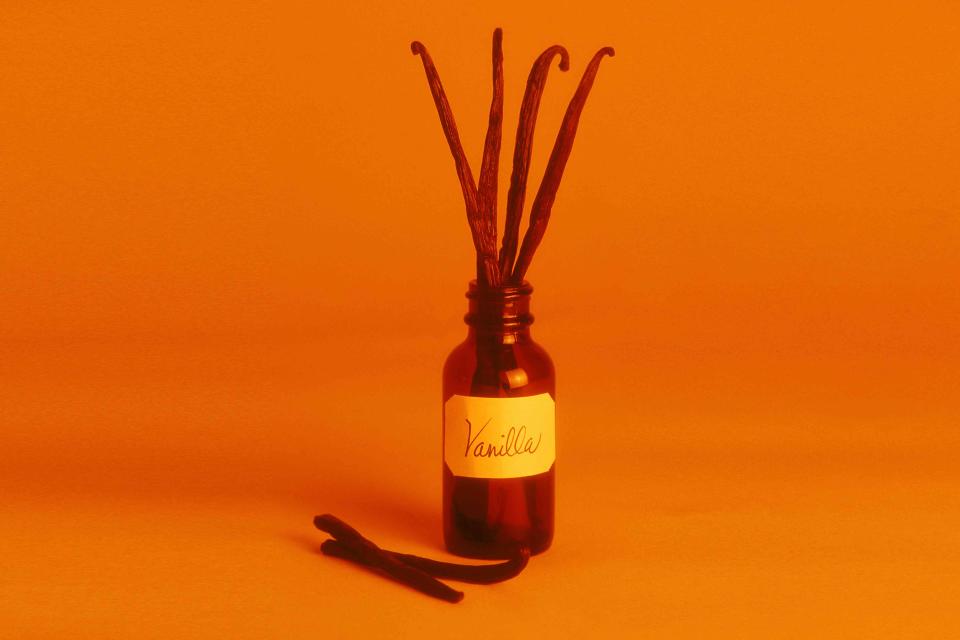Does Vanilla Extract Go Bad?
You can keep using that bottle of vanilla extract for a long while.

Chris Rogers/Getty Images
Vanilla extract is a key ingredient in many baking and dessert recipes, lending a big flavor punch from only a teaspoon or two added into the batter. But can vanilla extract still be good after a year (or five!) in your kitchen cupboards? The short answer is yes—that vanilla extract in your cabinet is likely safe to use, even if you can't quite remember when you bought it.
But whether the flavor will be there in that five-year-old bottle of vanilla? That's another question entirely. Here's everything you need to know about when that vanilla extract will go bad, and how to prevent it with proper storage.
Related: A Baker's Guide to the (Many) Types of Vanilla
Does Real Vanilla Extract Go Bad?
Pure vanilla extract (the kind made with real vanilla beans and at least 35 percent alcohol) has an indefinite shelf life. unless it's been stored improperly. But the flavor itself may change after a few years—it may become stronger, or weaken in flavor, which can especially impact recipes where the vanilla flavor is front and center, such as a vanilla ice cream or cake.
The best way to test if the flavor is still good is a sniff test. If the vanilla extract scent is faint—and isn't that typical sweet scent—you'll probably want to invest in a new bottle.
Related: 5 Clever Ways to Use Vanilla Extract That Don't Require Baking
Does Imitation Vanilla Extract Go Bad?
Imitation vanilla extract can be a cost-effective way to get that vanilla flavor, as it uses lab-produced vanillin, rather than actual vanilla beans. But imitation vanilla extract doesn't tend to last as long as pure vanilla extract. According to Wilton, you can expect the flavor to remain for up to a year after the expiration date. After that it's best to invest in a new bottle before your next baking event.
How to Store Vanilla Extract
Like many other food and ingredients, exposure to temperature extremes and light can cause the quality of your vanilla extract to decline. So a room temperature spot is the place to store it. You should look for a dark cupboard away from heat-producing appliances like stoves and dishwashers (or actual heat registers) for a good home for your vanilla extract.
Light is also not your extract's friend (as you might imagine, given that vanilla extract is usually shipped in dark bottles). So make sure that it's kept in a dark space to really reduce the light exposure. (Open shelving is definitely not your vanilla extract's friend here.)
Some experts recommend decanting smaller amounts of a larger bottle of vanilla extract to use over a few months' time, to help avoid opening and closing the same bottle over and over again, exposing the extract to air and potential contamination.
And don't bother storing your vanilla extract in the fridge. It's not necessary, as vanilla extract is a shelf-stable ingredient—and it may make your extract turn cloudy.
Ways to Use Vanilla Extract (So You Don't Have to Worry About it Going Bad)
The best way to ensure that your vanilla extract doesn't go bad? Use it wisely! While baked goods like cakes and cookies are a good start (and vanilla ice cream is also delicious!), you can also use it to flavor cocktails or smoothies, or put a couple of tablespoons in your coffeepot before brewing to create vanilla coffee for your favorite fancy coffee drinks. You can even use some to freshen the air in your home, either by dousing a cotton ball in it or putting a tablespoon of vanilla extract into a simmer pot.
For more Real Simple news, make sure to sign up for our newsletter!
Read the original article on Real Simple.

